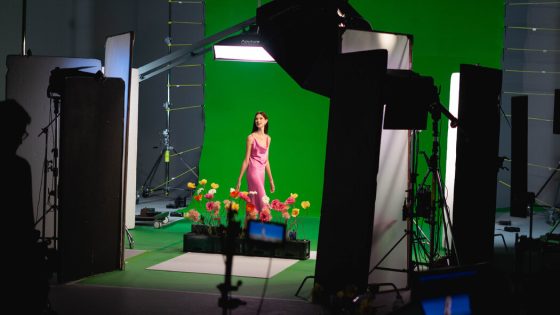Love it or hate it, artificial intelligence has become increasingly prevalent in our lives. Now, jewelers are exploring its marketing potential.
Frankie Deane, senior vice president of growth for the British brand Monica Vinader, said A.I. was “another form of us utilizing technology to elevate our digital experience for consumers.” When it comes to providing an elevated product and in-store experience, “there is a greater expectation I think on brands like us to translate that digitally,” she said.
The brand, whose pieces range from 24 British pounds (about $30) to £1,495 (about $1,870), announced in December that it would begin work with the U.S.-based company Constructor, an A.I.-powered search platform, to create bespoke digital experiences including tailored landing pages for each shopper and personalized search results. While the overall project was still in a testing phase, some elements began to be introduced in March.
Last year, the Bond Street jeweler David Morris was seeking help to create a gifting advertising campaign for its everyday pieces, which start at £1,500.
“We really wanted something that was as impactful as our high jewelry campaigns,” Cecily Morris, the brand content manager and the third generation of Morrises to work at the company, said in a video interview from Doha, Qatar, where she attended a jewelry and watches show. “We’re always looking for something that’s going to stand out amongst the crowd.”
“A.I. hadn’t really crossed my mind,” she added. That is, until she received a pitch from J11, a content studio in Banbury, England.
The studio suggested creating a series of A.I. worlds inspired by the stories behind the eight collections intended for David Morris’s social media and online video campaign. The viewer would then be taken on a tour of these new lands. “So then you introduce someone walking into that world and, you know, doing close-ups of the jewelry,” Darren Giles, J11’s creative director, explained.
“We really liked the idea,” he said, “that it would feel really immersive.”
In its pitch, J11 had been able to create images of these worlds by using data-driven and generative A.I. “It kind of blew our minds,” Ms. Morris said, who typically is only shown old-school mood boards to get the feel of an idea.
But with the J11 offering, “we knew exactly what it was going to look like,” she said.
Mr. Giles and his team created scenes that he described as “Alice in Wonderland stepping into these kind of surreal, beautiful, kind of mysterious worlds.”
The company used nine different A.I programs to create images that it then mixed and retouched along the way to create the nearly two-minute video. Snippets of specific collections were also posted on Instagram.
“It wasn’t using A.I. for the sake of using A.I. — it kind of really worked with that particular idea,” Mr. Giles said.
In the final ad campaign film, a real model peers into a David Morris box. She then steps inside and walks through into the A.I.-created scenes. As she discovers each new world, the corresponding jewelry collection appears on her, as if by magic.
Craftsmanship is a key component of the jewelry world, which celebrates specialty skills and the touch of the hand. “I think having a real human wearing the jewelry and seeing how it sits it kept it tangible,” Ms. Morris said.
Annie Corser, an editor at the forecasting agency Stylus, said in a phone interview that the use of A.I. is “one of the more natural fits” for luxury advertising. “Presenting products — jewelry very specifically included in that — that often means this world-creation,” she added. “It means fantasy building, designing that sort of beautiful, liminal, otherworldly space, often kind of dreamlike environments.”
Ms. Corser said she thought the campaign used the right amount of experimentation, using “generative A.I. as a collaborator. It’s not been handed the creative reins entirely.”
“It’s about understanding where and when A.I. makes sense,” she said.
The transformative quality is something that the Italian jewelry house Pomellato explored for its Nudo Crafted Emotions video campaign with the artist Alberto Maria Colombo, which debuted in spring 2023.
Boris Barboni, the brand’s chief marketing officer, said that because “we’re not about, you know, two centuries of legacy,” using A.I. with art provided the “perfect language.”
The idea behind the campaign was to explore the meaning of jewelry, and how “it’s all about emotions,” he said.
Filmed at Villa Necchi in Milan, the video shows a real model walking through the property. With each scene she wears a different gem and her mood changes to reflect what that color — taken from the Nudo collection — represented to Mr. Colombo. He edited the film using A.I. to add an Impressionist-style overlay, like a painting in motion amid a dreamy landscape.
Ms. Corser said she thought that A.I. could help to create the sort of special treatment people want when they’re buying high value products online. And when it came to the use of A.I. in creative industries in the past year, she said she had observed “people really wanting you to know that they’re on top of it” and that “the benefits of A.I. aren’t going to pass them by.”
Source Agencies




